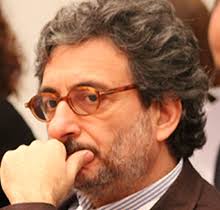In a nutshell
Between 2002 and 2007, a period of major institutional reform, Turkey experienced one of the highest sustained growth rates in per capita income in the country’s history.
Recently, the government has weakened regulators’ independence and introduced new schemes with greater discretionary powers.
As a result, economic growth is less likely to be driven by open competition and will rely on discretionary instruments to generate investment.
Before the 2000s, economic policy-making in Turkey was based on discretion and patronage rather than rules. This put a significant amount of stress on public finances, resulting in macroeconomic instability.
In the wake of the 2000/01 financial crisis, the government made major institutional reforms that at least nominally reduced its discretion, delegated policy-making authority to independent bodies, and introduced more rule-based policy-making processes into key segments of the economy. Turkey’s candidacy for membership of the European Union (EU) provided an institutional anchor and guided these institutional reforms.
Contours of institutional change
Governments often use trade, investment or industrial policies to distribute rents towards favoured businesses. In the case of Turkey, these options had been limited since the mid-1990s because of a customs union with the EU and membership of the World Trade Organization.
Both of these, but especially the customs union, limited Turkey’s ability to implement selective support policies. Indeed, most of industrial policy instruments that Turkey has used in the last two decades have been ‘horizontal’ in nature, geared towards areas such as regional development and research and development. What these meant was that in tradable sectors, the scope for favouritism was limited.
There were a number of factors that were conducive to additional institutional reform in the 2000s. The first was the deep economic crisis of 2000/01. As is typically the case, the crisis increased the bargaining power of international organisations, such as the International Monetary Fund and the World Bank, as well as reform-minded people in the bureaucracy. This created an opportunity to implement major institutional reforms within a time span of one to two years.
The reforms included establishing independent regulatory authorities in banking, telecommunications, energy and public procurement. In a major step, the central bank was given independence. Transparency and control of the public budget was significantly increased and the ability of the government to use off-budget expenditures (for example, through government-owned banks) was significantly reduced.
The second important factor was the EU. While the customs union was already in place, Turkey became a candidate country in 1999. EU regulations provided templates for institutional reforms in many areas and most of the laws enacted in the period from 1999 to 2002 were inspired by EU legislation. Importantly, competition law had already been enacted in 1994 as a condition of the customs union.
The third crucial factor was the coming to power of the Justice and Development Party (AKP) in 2002. AKP was elected on a platform of anti-corruption and political and economic reform. At that time, it had a very strong pro-EU attitude, which reflected a significant shift away from the discourse of the traditional political Islam movement out of which it grew. The AKP embraced most (though not all) reforms. Being a conservative party, they were careful about fiscal policy and did not allow demands for wealth redistribution to result in the deterioration of the budget.
Politics trumps economic institutions
It is difficult to measure the impact of all these institutional changes on economic performance. Nevertheless, it is notable that between 2002 and 2007, Turkey experienced one of the highest sustained growth rates in per capita income in the country’s history. Macroeconomic stability was achieved relatively quickly and inflation was reduced to single digits, a substantial achievement given past experiences of inflation. The reforms created an environment more conducive to reap the benefits of competition and creative destruction.
But in the last few years, the political environment in Turkey has started to change radically. For various reasons, the prospect of EU membership has weakened and lost its allure. The government has turned increasingly authoritarian and intolerant of dissent. The high degree of cooperation between the AKP and the Gulen movement (a tight conservative network organised within business as well as the police and the judiciary) was replaced by open hostility when police apparently associated with the movement instigated corruption investigations against AKP ministers.
Change in the political environment took its toll on institutions of economic policy. Independence of the regulatory authorities and the central bank became increasingly challenged. In 2011, the government passed a law stating that regulatory agencies would be ‘inspected’ by the associated ministries, in effect giving the government an instrument that can be used to harass regulatory agencies.
More generally, state authority started to be used against businesses that fell out of favour with the government (or the president) or that were regarded as part of the Gulen network. The central bank came under intense pressure to keep interest rates low.
With regard to investment incentives, the government has introduced new schemes that give it more discretionary power. It appears that the more the government moves away from rule-based policy-making and resorts to discretion, the less it will be able to rely on the competitive process to generate growth, further increasing its incentives to rely on discretionary instruments to generate investment.
Once created, formal measures of independence will protect rule-based policy-making from political encroachment, but not indefinitely. Ultimately, it is the nature of political institutions that determine the nature of economic institutions.
In the golden years of the early 2000s in Turkey, the evolution of economic institutions largely reflected a political orientation that apparently was interested in EU accession. Currently, the evolution seems to be closely influenced by the more authoritarian and survival instincts of the government.
Further reading
Atiyas, Izak (2016) ‘Replace Discretion with Rules: How Policy Reform Can Boost Economic Performance’, ERF Policy Brief No. 10.


